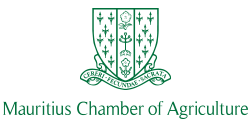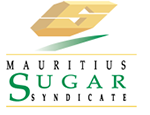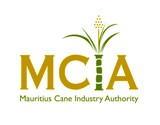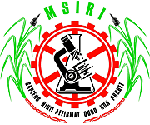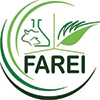Key Stakeholders

Mauritius Chamber of Agriculture (MCA)
Founded in 1853, Mauritius Chamber of Agriculture (MCA), a non-profit private association, is the oldest institution of the private sector and regroups agricultural farmers as well as other stakeholders of the sugar industry, other agricultural cultivations and other general agricultural related activities.
The Mauritius Chamber of Agriculture is a privileged stakeholder involved in different initiatives aiming at developing agriculture in Mauritius, and on the international platform. The main objective of the Mauritius Chamber of Agriculture is to represent, promote and protect the interest of the agricultural community as a whole.
Mauritius Sugar Syndicate (MSS)
The Mauritius Sugar Syndicate (MSS) is the commercial arm of the sugar sector in Mauritius and is responsible for the marketing and export of all the sugar produced locally. It is a private and independent organization governed by its members, all of whom are sugar producers comprising corporate and independent sugarcane growers as well as millers.In 1951, following the recommendations of the Mauritius Economic Commission 1947-48, the Mauritius Sugar Syndicate (the “Syndicate”), which finds its origins in 1919, was legally constituted for an indefinite period in pursuance of the Mauritius Sugar Syndicate Act 1951.
In fulfilment of its role, the Syndicate’s primary objective is to optimise producers’ revenue through adoption of commercial strategies likely to capture the highest yields obtainable from markets on a sustainable basis. Its operations are structured into specialised departments geared to provide support services of direct relevance to its core business, namely marketing, sales and logistics, finance and accounts, assistance to producers, and also ensuring quality and food safety for the sugars supplied.
Mauritius Cane Industry Authority (MCIA)
In order to ensure a sustainable cane industry as an important pillar within the socio economic framework of the country, the Mauritius Cane Industry Authority was established as a body corporate on 15 December 2011 with the enactment of the Mauritius Cane Industry Authority Act (No. 40 of 2011). The Act came into force by Proclamation on 19 March 2012.
Its mission is to promote the development of the cane sector and its clusters through systematic policy measures, creating an enabling environment with innovative and efficient services, research and development, technology transfers and value addition to meet current and future challenges.
The objectives of the Authority are to:
- Cane Planters and Millers Arbitration and Control Board
- Farmers Service Corporation
- Mauritius Sugar Authority
- Mauritius Sugar Industry Research Institute
- Mauritius Sugar Terminal Corporation
- Sugar Planters Mechanical Pool Corporation
In order to ensure a sustainable cane industry as an important pillar within the socio economic framework of the country, the Mauritius Cane Industry Authority was established as a body corporate on 15 December 2011 with the enactment of the Mauritius Cane Industry Authority Act (No. 40 of 2011). The Act came into force by Proclamation on 19 March 2012.
Its mission is to promote the development of the cane sector and its clusters through systematic policy measures, creating an enabling environment with innovative and efficient services, research and development, technology transfers and value addition to meet current and future challenges.
The objectives of the Authority are to:
- monitor, oversee and coordinate all activities relating to, and ensure a fair, efficient and effective administration and operation of the cane industry;
- promote and support the sustainable development, efficiency and viability of the cane industry;
- formulate and implement policies, strategies, plans, programmes and schemes in relation to the cane industry;
- promote and facilitate the sustainable development of the cane cluster in Mauritius and in the region;
- by means of research and investigation, ensure the technical progress and efficiency of the cane industry;
- monitor and co-ordinate the activities of the cane industry, including planting, milling, processing, transport, bulk handling and marketing;
- co-ordinate the activities of organisations concerned with the cane industry in the private and public sectors;
- overview the storage, sampling, bagging, packing, loading and unloading of sugar;
- maintain a pool of machinery for agricultural purposes;
- resolve disputes between planters, millers and middlemen;
- overview the registration of cane contracts;
- promote the development and use of co-products;
- facilitate the participation of employees and planters in the cane industry;
- ensure that necessary essential services are available to planters;
- promote the setting up of cane nurseries and the supply of cane setts to planters;
- facilitate the adoption of modern and efficient agricultural practices by planters.
- foster the use of biomass, including sugar cane, cane trash, high fibre cane, fuel canes, gramineae and other related biomass, in the production of electricity and biofuels for transport ; and
- foster competitiveness of all segments of production in the cane industry.
Mauritius sugarcane Industry Research Institute (MSIRI)
Since 2011, the MSIRI operates under the Mauritius Cane Industry Authority (MCIA), which has been set up as a body corporate under the MCIA Act No. 40 of December 2011. The legislation was promulgated on 19 March 2012, and the Ministry of Agro Industry and Food Security is the parent Ministry. The Institute has been renamed Mauritius Sugarcane Industry Research Institute (MSIRI), and its objectives are to conduct research on all aspects of sugarcane in order to enhance the cost effectiveness and competitiveness of the cane industry and to improve the efficiency of Mauritian sugar factories. A Research and Development Committee advises the MSIRI on research programmes and on all technical matters relating to the functions of the Institute
The main objectives of the MSIRI are to:
Conduct research on canes to enhance the cost effectiveness and competitiveness of the cane industry
Conduct research on technical and engineering options for improving the efficiency of factories and for value additions to the co-products
Conduct research programmes on such crops as the Minister of Agro Industry and Food Security may approve
Maintain an effective interaction with the agricultural sector and with national and international bodies
Sugar Insurance Fund Board (SIFB)
The sugar cane, first introduced in Mauritius in 1639, became the very lifeblood of our economy from the early 19th century to the later part of the 20th century. Subsequently, and in a large part due to the efforts of the sugar industry itself, the Mauritian economy was extensively diversified through other forms of manufacturing; an Export Processing Zone based largely on clothing and garment making, tourism, as well as off-shore banking and related activities. But even if Mauritius is no longer a text-book example of a monocrop economy, the sugar cane still dominates local agriculture in terms of foreign currency earnings, employment and GNP contribution.
The idea of insuring the sugar cane crop against weather damage is of long standing. It began in 1907 with the investigations of Mr. A. Walter, FRAS, and Chief Assistant at the Royal Alfred Observatory in Pamplemousses. These, designed to establish correlations between the cane crop and certain meteorological elements (wind, temperature and rainfall) and hence insurance possibilities of the cane crop against cyclone damage, were published in The Sugar Industry of Mauritius (A. L. Humphreys, Lond, 1910, 208 pp). There were other studies, notably by London-based crop insurers and by the local Agricultural Bank. Among serious difficulties encountered were the considerable losses caused by major cyclones, and the high premiums anticipated (between 5 to 10%), and the lack of general support among cane producers who were prone to droughts (the latter not being covered in any proposed insurance scheme being then studied).
The Commission of Enquiry on The Economic and Social Structure of Mauritius, 1960, headed by Professor J.E. Meade of Cambridge (eventually Nobel Laureate) reviewed the workings of the Cyclone and Drought Insurance Fund and interalia made the following remarks which continue to be of poignant relevance at the turn into the 21st century:
a. “Is it necessary for compulsory insurance to cover such a high proportion of losses incurred as a result of cyclone or drought? Would there be any advantage in having compulsory insurance to cover, say, a half of such loss or in making the planter or estate concerned meet the first 20% or 30% of any loss, leaving any insurance in excess of this to the decision of the grower? The present system ties up very large sums in sterling balances, and, although we fully agree with the necessity for an insurance scheme, it does not appear to us to be essential that such a high proportion of loss be met by a compulsory scheme, especially if this involves any considerable increase in premiums.
b. Is the definition of a “normal” year entirely satisfactory? Would there be any advantage in re-defining it in such a way as to cover, say, the previous seven years, whatever they may have been? We understand that sufficient data are not available to go back seven years in respect of a good deal of planters’ land, but, as information is build up, this should become possible.”
The purpose of the Fund, the Meade Commission insisted, was ‘to meet serious loss’ and it should be ready to do so while avoiding what might otherwise ‘be a need to raise premiums to an excessive level’ (Frank Cass Ltd, Lond 1961; pp 81-84).
In 1963, the Fund was scrutinized as part of a wider Sugar Industry Inquiry carried by Dr. T. Balogh and Mr. C.J.M. Bennett. The Balogh Commission shared the ‘considerable’ anxiety felt in many quarters, private and public, concerning the Fund but felt it necessary to reserve its eventual recommendations to Government for a confidential submission (Mauritius Legislative Council, Govt. Printer Sessional paper no.4 of 1963, Chapter 8, Section VI para 8.29 – 8.40).
From time to time, special measures have had to be taken to cope with particular situations to avoid severe depletion of reserves following violent cyclones or droughts, thus by putting an upper limit on compensation in certain years or by making additional export levies to boost the insurance fund in years of sugar boom. These measures came about generally through government – industry consensus and are reflected in the legislation. In 1969, provision was made to cover damage from excessive rainfall. Subsequently in 1974 a Fire Insurance Scheme was incorporated with existing schemes for cyclones, droughts and excessive rainfall and the organization was restyled the Sugar Insurance Fund Board.
Mauritian sugar insurance has distinct and unique features, which make it a focus of attention in world agriculture. But even in Mauritius, there are from time to time proposals to the effect that there should be insurance schemes for other crops, and for animal production. Interest in these proposals tends to evaporate once the questions of costs and who shall bear them come on the agenda. Tobacco may yet prove an exception, but its insurance awaits full analysis. On the other hand, even within the local sugar industry, complaints persist, some evergreen, keeping the Sugar Insurance Fund ever vigilant.
OBJECTIVES
To insure the sugar production of planters, metayers and millers, against losses due to the effects of inclement weather such as, cyclones, drought and excessive rainfall under its General Insurance policy. Fire occurrence in sugar cane field is another risk covered by the Fund under its Fire Insurance policy.
Food and Agricultural Research and Extension Institute (FAREI)
The Food and Agricultural Research and Extension Institute (FAREI) has been established on 14 February 2014 as per the FAREI Act 2013 to take over the functions of the Food and Agricultural Research Council (FARC) and the Agricultural Research and Extension Unit (AREU). It operates under the aegis of the Ministry of Agro Industry and Food Security. This restructuring is part of the Government Programme to reform parastatals of the Ministry of Agro Industry and Food Security with a view to improve the cost-effectiveness, quality of services and optimal use of human resources at both organisations.
The Institute has the responsibility to conduct research in non-sugar crops, livestock, forestry and to provide an extension service to farmers in Mauritius including its outer islands. The FAREI is managed by a Chief Executive Officer who is also the Accounting Officer. Its management team comprises three Assistant Directors.
Its mission is to support and implement priority RDT programmes and projects and appropriate technologies for food security and to enhance competitiveness, sustainability and stakeholder equity across the agri-food value chains with the vision to help steer and promote the sustainable development of the National Agri-food System through the efficient and effective application of Research, Development and Training (RDT).
The strategy and objectives of FAREI are :
Introduce, develop and promote novel technologies in the food and non-sugar agricultural sector within a sustainable framework
Co-ordinate, promote, and harmonise priority research activities in the non-sugar agricultural, food production and forestry
Promote and encourage agricultural and agri-business development through the setting up of agricultural youth clubs, agricultural women clubs and agricultural entrepreneur clubs; and
Promote dissemination and practical application of research results
Agricultural Marketing Board (AMB)
The Agricultural Marketing Board is a self-financed parastatal body operating under the aegis of the Ministry of Agro Industry and Food Security. The Agricultural Marketing Board was established in 1964 to implement food security strategies and to expand the local production of strategic crops like onions, potatoes and garlic. The Agricultural Marketing Board is vested with wide powers in matters relating to the production, storage, import, export and sale of a number of commodities declared as “Controlled Products” by law.
Its mission is to maximize customer satisfaction by providing high quality and innovative products and services reliably and cost effectively towards the vision of being a global strategic partner for a sustainable Agro-Industry.
The objectives of the AMB are:
to encourage local production of as much of the country’s food requirements as is economically feasible;
to ensure that marketing costs are at a minimum, consistent with satisfying consumer demand;
to limit price fluctuations in line with consumer preferences;
to operate its installations and other resources with maximum efficiency for the benefit of producers and consumers;
to regulate standards and quality of products falling under its control.
Statistics Mauritius
Statistics Mauritius is the official organisation responsible for collection, compilation, analysis and dissemination of the official statistical data relating to the economic and social activities of the country.
It releases the following publications on a regular basis:
